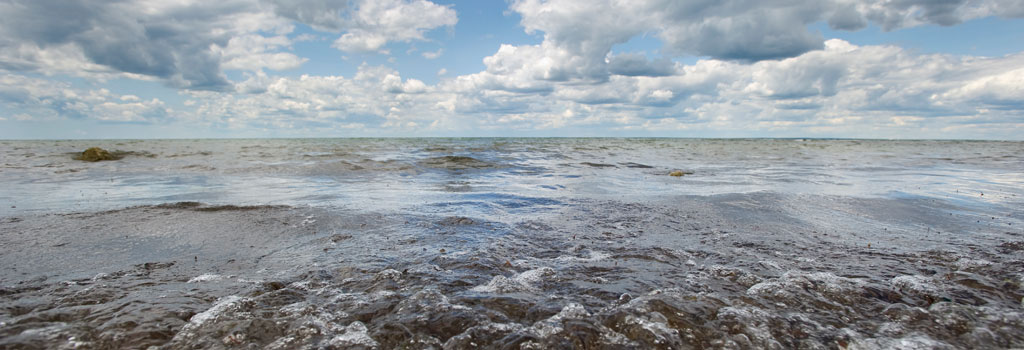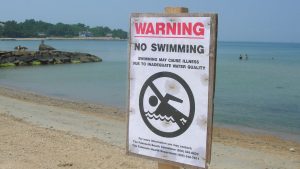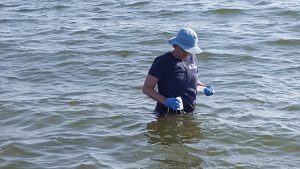Water Quality

Good water quality is necessary for swimming, boating, fishing, shellfishing, aquaculture, and most of the other activities that bring people to the coast, as well as for healthy coastal habitats. Major water quality concerns are often related to climate-oriented changes in biophysical processes and land-based human activities including septic discharge and runoff from lawn fertilizers and agricultural activities.
A significant portion of the research portfolio of the Woods Hole Sea Grant program during the past few years has focused on gaining a better understanding of nutrient pollution in coastal watersheds, harmful algal blooms, and ocean acidification.
Research Projects
Some of the water quality-related research projects:
- Effects of environmental quality on early stage juvenile shellfish growth and survival: an aquaculture approach using in situ eutrophication and coastal acidification gradients
- Halogenated Marine Natural Products: A Potential Risk to Human Health?
- Harmful Phytoplankton Blooms in Buzzards Bay, MA
- A Watershed-Scale Analysis of Nitrogen Loading from Cranberry Agriculture in the Weweantic Watershed of Southeastern Massachusetts (2018-2020)
- Examining Significant Changes to the Nitrogen Cycle in Waquoit Bay (2014-2016)
- Stormwater Treatment Systems: Are they effective in reducing nitrogen loads to coastal waters? (2015, EPA Healthy Communities Program)
- See a full list of funded projects from 2010-present
Community Engagement
WHSG employs specialists with the Cape Cod Cooperative Extension to create an effective outreach partnership providing reliable technical and science‐based information to distinct groups within our region. Extension and outreach staff share their expertise with communities and individuals, as well as working directly with the management community charged with making regulatory decisions. Our efforts include:
- A review of Wastewater Dilution Modeling (2025)
- Collaborative workshops on wastewater management and water quality issues
- Sponsorship of the annual Cape Coastal Conference where innovative local strategies on nutrient management are discussed
- Teacher workshops on the effects of ocean acidification on coastal ecosystems, primary productivity, ocean circulation, and derelict fishing gear and marine debris
- Citizen Science: Improving Water Quality in Waquoit Bay
- Participation in the Northeast Coastal Acidification Network workshops on stakeholder engagement on ocean acidification
- Establishing a water quality monitoring system using remotely accessed sensors
- Restoration of local ponds


